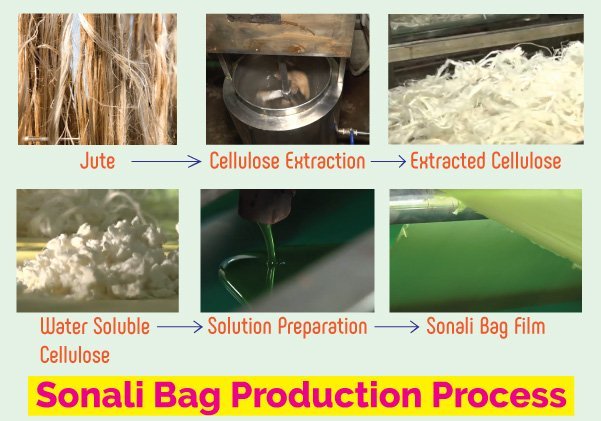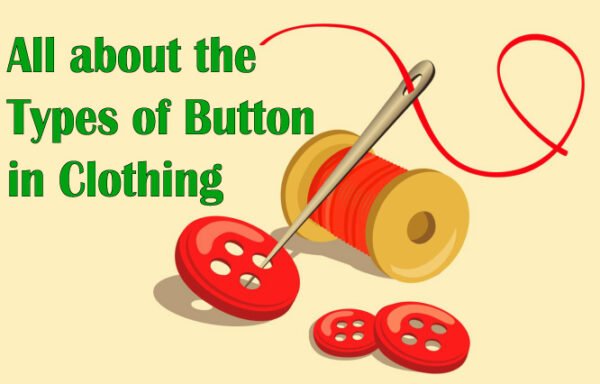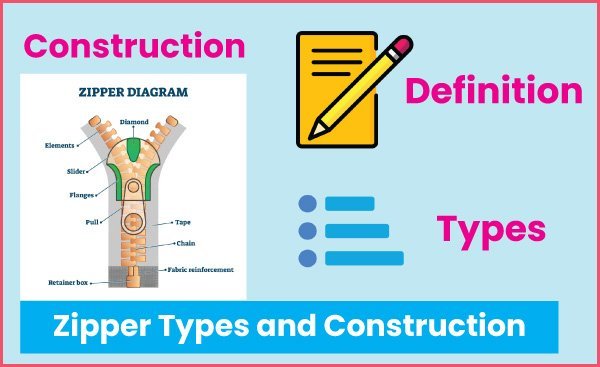Sonali Bag: A Sustainable Solution to Greener Packaging
Last updated on March 20th, 2024 at 07:57 pm
Sonali bag, also known as the golden bag, jute polymer, or eco-friendly poly bag, is a pioneering biodegradable bioplastic. It was developed as a sustainable alternative to traditional plastic bags, especially polythene ones. This innovation originated in Bangladesh, thanks to the efforts of scientist Mubarak Ahmad Khan. The primary ingredient in this bag is cellulose, derived from jute, a globally cultivated vegetable fiber plant.

Do you know?
An estimated 5 trillion plastic bags are used worldwide annually, with Bangladesh alone consuming over 14 million pieces every day! Polybags account for 10% of landfill waste in developing countries. 8 million tons of plastic enter the oceans each year, with plastic bags being a major contributing factor. They disturb and kill marine life, creating a serious threat to ecosystems.
Many “biodegradable” or “compostable” polybags are not truly eco-friendly. They often require specific industrial composting facilities, which are not widely available and can take months or even years to decompose. Even biodegradable bags can fragment into microplastics, entering the food chain and posing potential health risks.
The environmental clean-up costs associated with polybag waste are shocking. In India alone, it’s estimated to be around $13 billion annually. Burning polybags releases toxic fumes, contributing to air pollution and respiratory diseases.
Imagine a world where every step you take contributes to a greener tomorrow. This is the story of a bag that not only carries your belongings but also bears the weight of a revolutionary commitment to the environment.
History and Development
Bangladesh’s 2002 polythene bag ban triggered the quest for sustainable alternatives. Scientist Mubarak Ahmad Khan, leading a team at the Bangladesh Atomic Energy Commission, spent over a decade researching natural fiber composite (NFC) materials, which resulted in the sonali bag in 2015.
Jute, Bangladesh’s golden fiber, became the key ingredient. These bags are primarily composed of cellulose extracted from jute, making them 100% biodegradable and compostable within 6 months.
Sonali Bag Production Process
Raw jute ➡️ Jute bleaching ➡️ Cellulose extraction ➡️ Extracted cellulose ➡️ Water soluble cellulose ➡️ Binder, chemicals and food graded dyes are added ➡️ Final solution preparation ➡️ Plastic film preparation ➡️ Sonali Bag

Composition and Features
The bag’s secret condiment lies in its unique composition. Besides jute cellulose, it also includes natural plasticizers like glycerol and stearic acid, obtained from vegetable oils, along with a binding agent.
This seemingly basic formula provides the sonali bag with impressive qualities. It’s water-resistant, tear-resistant, and can hold weight comparable to conventional plastic bags. Additionally, these bags are sturdy, capable of carrying heavy items, and possess moisture resistance qualities, making them suitable for various purposes.
Benefits of Sonali Bags
This bag offers a number of benefits over traditional plastic bags, including:
- Biodegradability: This bag is completely biodegradable, meaning they will break down into natural materials over time. This take 3 months do dissolve in soil and 8 hours in water. This helps to reduce pollution and protect the environment.
- Strength: This bag is strong and durable, capable of carrying heavy loads. They are also resistant to tears and punctures. This can hold 35 lbs whereas traditional bags can hold 20 lbs.
- Recyclability: This bag is recyclable, further reducing their environmental impact.
- Sustainability: This bag is made from jute, a renewable resource that is grown in Bangladesh.
- Employment: Jute cultivation provides employment opportunities to rural communities, supporting local economies.
- Design: This bag come in a variety of designs, allowing for customization and reflecting individual style.
Challenges to the Commercialization of Sonali Bags
Despite their many benefits, these bags have yet to be widely adopted in Bangladesh or around the world. There are a number of challenges that have slowed their commercialization, including:
- Cost: This bag is currently more expensive than traditional plastic bags. This is due to the cost of the raw materials and the manufacturing process. It costs 10 times more than traditional plastic bag and 5 times than other biodegradable bag like paper bag.
- Production capacity: The current production capacity for sonali bag is limited. This is due to the lack of investment in the manufacturing facilities.
- Awareness: There is a lack of awareness about sonali bags among consumers. This is due to the limited marketing and promotion of the product.
Ways to Overcome the Challenges
There are a number of ways to overcome the challenges to the commercialization of sonali bags, including:
- Government support: The government can provide financial support to help reduce the cost of these bags and increase production capacity.
- Public awareness campaigns: Educating consumers about the environmental impact of traditional packaging and the advantages of using these bags can create a demand and shift consumer behavior.
- Partnerships with businesses: Partnerships with businesses can help to increase the demand for these bags.
- Improving the production capacity: The authority is now producing only 15,000 polybags per day, but the demand for the bag is almost three times the production capacity. So, the production capacity should be increased.
Besides, collaborations between environmental organizations, businesses, and governments can work together to create awareness campaigns and distribution channels for these bags.
The Future of Sonali Bags
The future of sonali bag is uncertain. However, the product has the potential to be a major success, both in Bangladesh and around the world. With government support, public awareness campaigns, and partnerships with businesses, sonali bag could become a common sight in stores and supermarkets. This would be a major step forward in the fight against plastic pollution and in the creation of a more sustainable future. Moreover, as technology advances, the production cost of sonali bag is likely to decrease, making them more accessible to businesses of all sizes.
Conclusion
The sonali bag represents a sustainable and environmentally friendly solution to the packaging industry’s waste problem. With its biodegradable composition, reusable nature, and positive socio-economic impact, it offers a greener alternative to conventional polybags. By addressing the challenges and fostering awareness, we can pave the way for a future where sonali bag become the norm in packaging. Together, let us embrace this sustainable solution and create a world with greener packaging practices.
Frequently Asked Questions (FAQ) on Sonali Bag
Here are some frequently asked questions about Sonali bag:
Who invented Sonali Bag?
The sonali bag was invented by Dr. Mubarak Ahmad Khan, a Bangladeshi scientist and researcher.
When was Sonali Bag invented?
The sonali bag was invented in 2015 by Dr. Mubarak Ahmad Khan, a Bangladeshi scientist and researcher.
What are the benefits of Sonali Bag?
The benefits of sonali bags are that they are eco-friendly, biodegradable, recyclable, higher-strength, and versatile.
Is Sonali Bag a sustainable solution of polythene problem in the country?
Yes, the sonali bag is a sustainable solution of polythene problem in any country.
What is the solution for the plastic bag problem?
The sonali bag is a great solution for the plastic bag problem.



